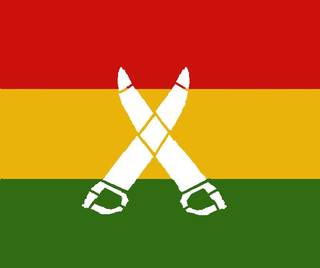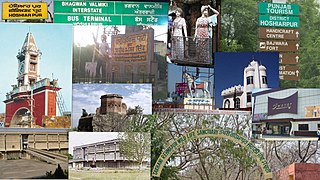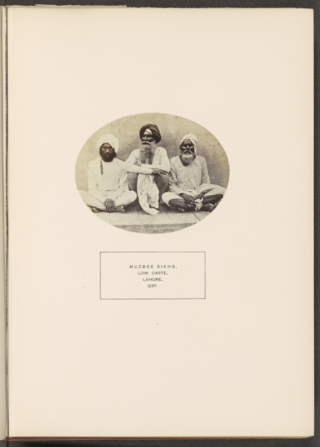Related Research Articles

The Dalit Buddhist movement is a religious as well as a socio-political movement among Dalits in India which was started by B. R. Ambedkar. It re-interpreted Buddhism and created a new school of Buddhism called Navayana. The movement has sought to be a socially and politically engaged form of Buddhism.

Dalit, also some of them previously known as untouchables, is the lowest stratum of the castes in the Indian subcontinent. Dalits were excluded from the fourfold varna of the caste hierarchy and were seen as forming a fifth varna, also known by the name of Panchama. Several scholars have drawn parallels between Dalits and the Burakumin of Japan, the Baekjeong of Korea and the peasant class of the medieval European feudal system.
Kanshi Ram, also known as Bahujan Nayak or Manyavar, was an Indian politician and social reformer who worked for the upliftment and political mobilisation of the Bahujans, the backward or lower caste people including untouchable groups at the bottom of the caste system in India. Towards this end, Kanshi Ram founded Dalit Shoshit Samaj Sangharsh Samiti (DS-4), the All India Backwards (SC/ST/OBC) and Minorities Communities Employees' Federation (BAMCEF) in 1971 and the Bahujan Samaj Party (BSP) in 1984. He ceded leadership of the BSP to his protégé Mayawati who has served four terms as Chief Minister of Uttar Pradesh.

The Ghadar Movement or Ghadar Party was an early 20th-century, international political movement founded by expatriate Indians to overthrow British rule in India. Many of the Ghadar Party founders and leaders, including Sohan Singh Bhakna, would go on and join the Babbar Akali Movement and would help it in logistics as a party and publishing its own newspaper in the post-World War I era. The early movement was created by revolutionaries who lived and worked on the West Coast of the United States and Canada, but the movement later spread to India and Indian diasporic communities around the world. The official founding has been dated to a meeting on 15 July 1913 in Astoria, Oregon, and the group would splinter into two factions the first time in 1914, with the Sikh-majority faction known as the “Azad Punjab Ghadar” and the Hindu-majority faction known as the “Hindustan Ghadar.” The Azad Punjab Ghadar Party’s headquarters and anti-colonial newspaper publications headquarters would remain in the Stockton Gurdwara located in Stockton, California, whereas the Hindustan Ghadar Party’s headquarters and Hindustan Ghadar newspaper would relocate to be based in nearby Oakland, a suburb of San Francisco, California.

Hoshiarpur is a city and a municipal corporation in Hoshiarpur district in the Doaba region of the Indian state of Punjab. It was founded, according to tradition, during the early part of the fourteenth century. In 1809, it was occupied by the forces of Maharaja Karanvir Singh and was united into the greater state of Punjab in 1849.

Jagjivan Ram, known popularly as Babuji, was an Indian independence activist and politician from Bihar. He was instrumental in the foundation of the All India Depressed Classes League, an organisation dedicated to attaining equality for dalits, in 1935 and was elected to Bihar Legislative Assembly in 1937, after which he organised the rural labour movement.
Chuhra, also known as Bhanghi and Balmiki, is a Dalit caste in India and Pakistan. Populated regions include the Punjab region of India and Pakistan, as well as Uttar Pradesh in India, among other parts of the Indian subcontinent such as southern India. Their traditional occupation is sweeping, a "polluting" occupation that caused them to be considered untouchables in the caste system.
Ravidassia or the Ravidas Panth is a religion based on the teachings of Guru Ravidas. It was considered a sect within Sikhism until 2009. However, some Ravidassias continue to maintain Sikh religious practices, including the reverence of the Guru Granth Sahib as their focal religious text, wearing Sikh articles of faith (5Ks), and appending Singh or Kaur to their names.

Mazhabi Sikh is a community from Northern India, especially Punjab region, who follow Sikhism. Mazhabi are part of wider category of Sikhs, who convert from the hindu rangrette. The word Mazhabi is derived from the Arabic term mazhab, and can be translated as the faithful. They live mainly in Indian Punjab, Rajasthan and Haryana.
Muggowal or Mugowal is an agricultural village in the Hoshiarpur District of Punjab in India. It is birthplace of the founder of Ad-Dharm movement and Bahujan activist Babu Mangu Ram Mugowalia.

Shri Guru Ravidas Janam Asthan Mandir, located in Sir Gobardhan, Varanasi, Uttar Pradesh, India, is an important cultural and religious site for Dalits, Ravidasis, Ad-Dharmis, and Ramdasia Sikhs. It was built to mark the birthplace of Ravidas. Millions of devotees gather there for Ravidas's birthday each year.
Adi Dharm refers to the religion of Adi Brahmo Samaj the first development of Brahmoism and includes those Sadharan Brahmo Samajists who were reintegrated into Brahmoism after the second schism of 1878 at the instance of Devendranath Tagore. This was the first organised casteless movement in British India and reverberated from its heart of Bengal to Assam, Bombay State, Punjab and Madras, Hyderabad, and Bangalore.

Dera Sach Khand Ballan, also known as Dera Sant Sarwan Dass or Dera Ballan, is a Ravidassia dera based in the village of Ballan near Jalandhar, Punjab, India. It was founded by Pipal Dass soon after 1900, and it played a role in the Ad Dharm movement to popularize the image of Ravidas as a guru. It has since adopted the mission of spreading the teachings of Ravidas and advancing public education and healthcare in India.
The Ad-Dharmi is a sect in the state of Punjab, in India and is an alternative term for the Ravidasia religion, meaning Primal Spiritual Path. The term Ad-Dharm came into popular usage in the early part of the 20th century, when many followers of Guru Ravidas converted to Sikhism and were severely discriminated against due to their low caste status. Many of these converts stopped attending Sikh Gurdwaras controlled by Jat Sikhs and built their own shrines upon arrival in the UK, Canada, and Fiji Island.Ad-Dharmis comprise 11.48% of the total of Scheduled Caste communities in Punjab.
Chaudhary Sadhu Ram was an Indian politician and five-time Member of Parliament.
Swami Achhootanand was a 20th century Indian anti-caste intellectual, writer, and social reformer. A former Arya Samajist, he became disillusioned with the Arya Samaj and established the Adi Hindu movement. He was a poet, critic, dramatist, and historian.
Master Gurbanta Singh was an Indian politician, educationist and social reformer from Punjab, India.
Seth Kishan Dass was a leather trader, propagator of the Ad-Dharm movement, and a politician.

Balbir Madhopuri is a Punjabi language writer, poet and translator. He is best known for his autobiography, Chhangiya Rukh. His writings are primarily focused on the issues related to the oppressed and depressed classes, especially Dalits. In 2021, He has received The Dhahan Prize for Punjabi Literature for his novel Mitti Bol Payi.
Scheduled castes in Punjab, or Dalits in Punjab are the officially designated groups in Punjab state in India which are most disadvantaged due to the caste system. They were placed in the lowest ranks of the caste system, because of which they suffered and are still suffering from social, political, economic and personal discrimination.
References
- ↑ "Remembering Babu Mangu Ram Mugowalia".
- 1 2 3 Ram, Ronki (2004). "Untouchability in India with a Difference: Ad Dharm, Dalit Assertion, and Caste Conflicts in Punjab". Asian Survey. 44 (6): 895–912. doi:10.1525/as.2004.44.6.895. JSTOR 10.1525/as.2004.44.6.895.
- ↑ "Manguram Muggowal, a former Ghadar Party member, later joined the Dalit [the proper term for so-called untouchables] emancipation movement". Georgia Straight Vancouver's News & Entertainment Weekly. 26 July 2013. Retrieved 7 October 2015.
- ↑ "14th January in Dalit History – B'day of Babu Mangu Ram Mugowalia – Founder of Ad-Dharmi Movement". Dr. B. R. Ambedkar's Caravan. 14 January 2015. Retrieved 20 May 2017.
- ↑ "Welcome to ambedkartimes.com". www.ambedkartimes.com. Retrieved 20 May 2017.
- ↑ Pawar, Ishwar Das (2015). My Struggle in Life (3rd ed.). New York: Page Publishing Inc. p. 250. ISBN 9781682131565.